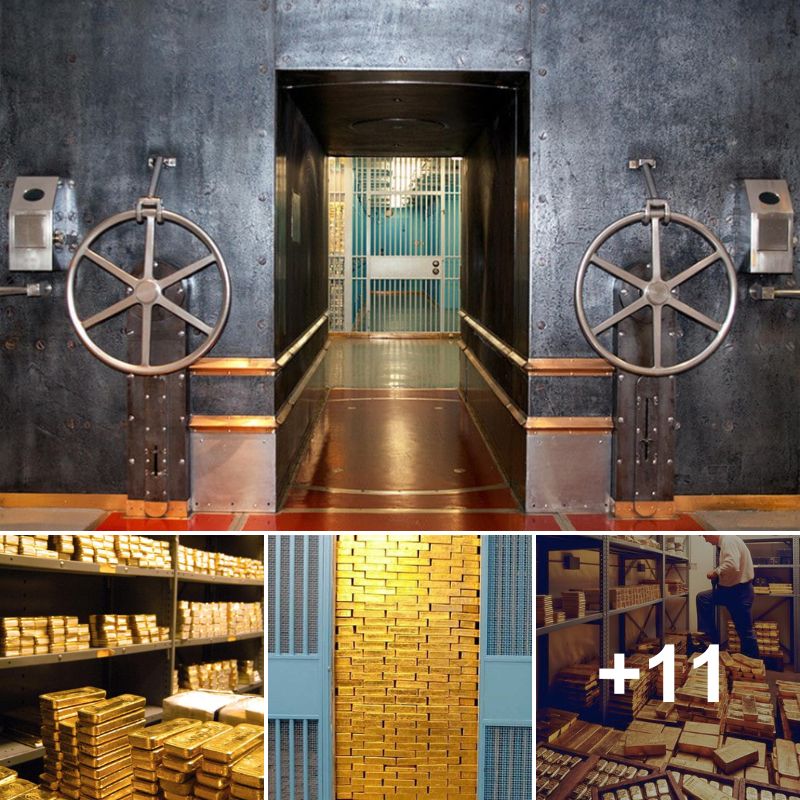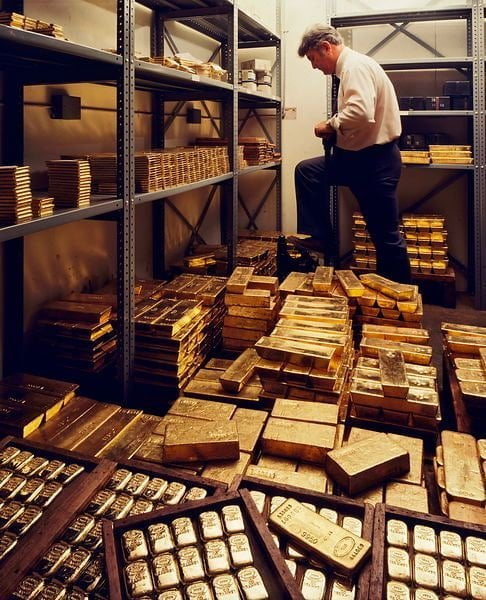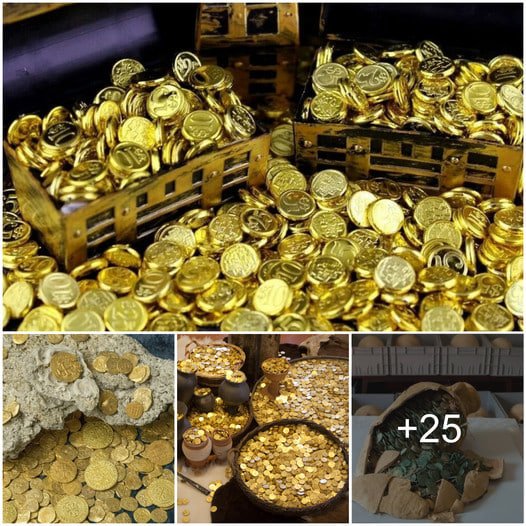
Deep beneath the lively streets of New York City, right in the middle of the global financial hub, lies an extraordinary treasure that is beyond belief. Buried within the solid rock, surrounded by secrecy and top-notch security, is the biggest gold vault in the world, a heavily fortified room built to protect an incredible 6,000 tons of valuable metal. This underground hideaway, a representation of riches and influence, serves as clear evidence of mankind’s enduring obsession with gold and the enormous measures taken to keep it safe.

The secret vault, known only to a chosen few, serves as a powerful symbol of the historical importance of gold in the world of finance. Gold has long been revered as a representation of wealth, a reliable store of value, and a form of security. With a whopping 6,000 tons of gold inside, this vault holds billions in financial value, making it an essential asset in the financial landscape of the bustling city that never rests.

The vault operates under a shroud of secrecy and tight security measures. Its whereabouts are kept confidential, and only a select few are granted access. Cutting-edge technology, armed guards, and layers of impenetrable security work together to safeguard the immense fortune stored within.

However, besides the financial and security considerations, the presence of the vault raises inquiries about the everlasting attraction of gold and the role it holds in the shared imagination. Throughout history, gold has entranced people, representing power, elegance, and the pursuit of wealth. Situated underground in one of the most bustling cities in the world, this vault mirrors the profound human captivation with this valuable metal.

Contained within the heart of New York City lies a significant amount of gold, symbolizing the city’s crucial role in the worldwide financial system. This hidden reserve not only represents the enduring appeal of gold but also its influence on both past and future financial systems and human culture.


